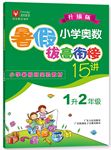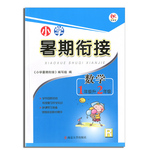题目内容
---The picture of the Snowflake Boy has become very popular recently.
---Yeah, it receives Internet hits a day.
A.thousands of B.thousands C.hundred D.hundreds
练习册系列答案
 津桥教育暑假拔高衔接广东人民出版社系列答案
津桥教育暑假拔高衔接广东人民出版社系列答案 波波熊暑假作业江西人民出版社系列答案
波波熊暑假作业江西人民出版社系列答案 学而优暑期衔接南京大学出版社系列答案
学而优暑期衔接南京大学出版社系列答案
相关题目

